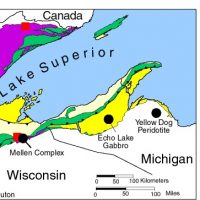TTT1118–May2-PolyMetCopperSulfidePART II
PART II: Legal, Treaty and Environmental Obligations for Copper and Nickel Mining
~~~~~~~~~~~~~~~~~~~~~~~~~~~~~~
VIDEO of this program can be seen in the Video Archive on this site and HERE
AUDIO file can be played and/or downloaded on this page below.
SONG “Precious Water” by Sara Thomsen can be heard HERE
FILM Precious Waters can be viewed HERE
What more are we willing to sacrifice in terms of what we’re able to eat, drink and breathe in order to provide some – perhaps a lot – of short-term construction work – along with far fewer full time, permanent jobs?
These are but a few questions that require some deep and introspective thinking and evaluating by millions of people who surely want clean air and water and unadulterated food, but who have, through no fault of their own, found themselves unemployed, limited in their training and education to the work they did before and eager to earn a living for themselves and their families.
Projects like the PolyMet Copper-Nickel Mine project well north of the Twin Cities make for such a seductive venture for economic development types hungry for what they see as job-producing. The mine would be dug smack in the middle of the Superior National Forest, in what is called the Duluth Complex – a relatively untapped lode of these metals – the Fond du Lac Indian Reservation.
But the short- and long-term damage this particular mine – worse than some others – is palpable, according to the EPA. The operation will “liberate” sulfides and sulfates from the rock excavated to reach the mother lode, and in turn, those chemicals, then turn to sulfur when exposed to air and turn the waters of some of the last remaining wild-rice fields in the world to crop-killing acid.
Some local state representatives, senators, mostly Democrats last year, and joining them this year – Republican majorities – and even Amy Klobuchar and former Congressman Jim Oberstar, endorse the project and angrily dismiss worried environmental groups and the Fond du Lac tribe’s arguments and even the Environmental Protection Agency’s lowest environmental rating as just so much hot air (as if job-killing were an active agenda for clean water and food). Besides, they say, almost seven years and $24 million later, it’s time to listen to the company’s assurances and move ahead with the mining.
The company isn’t much talking, except that their primary lobbyist has labeled liars those who have argued against granting this mine a permit. That lobbyist, Joe Samargia, a well-known former jobs commissioner for Governor Rudy Perpich and a former Iron Range Steelworkers union leader, declined to appear this week to defend his employer, PolyMet Mining. And, further we can only consult their website for what is little more than a marketing pitch.
Political supporters claim this all-new, non-ferrous mining operation will produce the important copper and nickel used in a variety of products we use every day – with an interesting emphasis on renewable, rechargeable and critical-use tools – like batteries, hybrid vehicles, and pollution-reducing catalytic converters. Clever marketing.
At stake in this project are issues confronting all Minnesotans, not just those in the immediate vicinity of the mine itself – but its direct impact on the Fond du Lac Tribe of Lake Superior Chippewa – its economy and the safety of the waters thereabouts. Moreover, the question of whether long-standing treaties granting the Chippewa/Anishinaabe Natives of not only Fond du Lac, but other tribes of Northern Minnesota actually govern the mineral extraction rights of the area if those extractions deny Indians the right to fish, hunt and gather for their living. Besides, wild rice is a sacred crop beyond its economic benefits.
So. What to do about this conundrum between one economy and another, between the millions of years of clean water and the likely changes that could probably kill everything living in it and the mining jobs so many people in that area believe are desperately needed – and will do anything, including leaving a questionable legacy of ecological disaster for the next generations in order to sustain their families and communities?
TTT’s ANDY DRISCOLL and MICHELLE ALIMORADI talk again with those who argue against this project, citing the EPA’s rejection of the company’s environmental impact statement (EIS) as inadequately projecting the effects of the mining on the surrounding waters.
[FYI: An annual Mother Earth Water Walk is beginning in the three oceans and gulf surrounding North America, converging in June at Bad River, Wisconsin, where water carried from those four corners is merged with Lake Superior. Details at the website for this event. You can follow along and pick up the walk at a convenient place along the way when it comes through your area.]
NANCY SCHULDT – Water Quality Director, Fond du Lac Tribe of Lake Superior Chippewa
PETER ERLINDER – Professor of Constitutional Law, Wm. Mitchell College of Law; author of a paper (unpublished) on Minnesota’s treaty history
PAULA MACCABEE – Attorney, Water Legacy
FMR SEN. JIM CARLSON – Author, SF 2349 (2010), providing for financial assurance for nonferrous metallic mineral minin
BRUCE JOHNSON – Retired MPCA Staff and Northern Minnesota constituent
BOB TAMMEN – Retired Mine Worker



